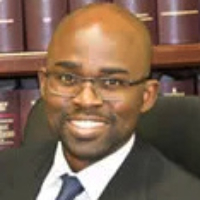Big Pool Criminal Lawyer, Maryland
Sponsored Law Firm
-
 x
x

Click For More Info:
-
Price Benowitz LLP
409 7Th St Nw Suite 200 Washington, DC 20004» view mapCriminal Law Working Relentlessly For You
Our firm was built on the understanding that comprehensive representation does not begin and end in the courtroom.
202-600-9400
Ayodeji Oyekunle Badaki
✓ VERIFIEDDivorce & Family Law, Accident & Injury, Criminal, Bankruptcy & Debt
Ayodeji Badaki holds a J.D. from the University of Baltimore School of Law as well as an LL.M. from the Georgetown University Law Center where he was ... (more)
Alison Christine Peteranecz
Divorce & Family Law, Criminal, Family Law
Status: In Good Standing Licensed: 15 Years
Andrea Marissa Francine Chee-A-Tow
Traffic, Divorce & Family Law, Criminal, Business
Status: In Good Standing Licensed: 18 Years
Andrea Marissa Francine Chee-a-tow
Family Law, Divorce & Family Law, Criminal, Business
Status: In Good Standing Licensed: 18 Years
Victoria J Lobley
Government, Divorce & Family Law, Criminal, Family Law
Status: In Good Standing Licensed: 22 Years
Thomas Craig Houpt
Divorce & Family Law, Criminal, Bankruptcy & Debt, Accident & Injury
Status: In Good Standing
 Seth Price Washington, DC
Seth Price Washington, DC AboutPrice Benowitz LLP
AboutPrice Benowitz LLP Practice AreasExpertise
Practice AreasExpertise

